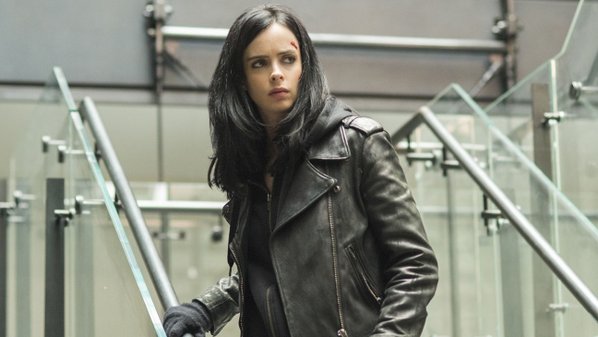Entertainment
Q&A: Krysten Ritter on scoring junkie roles, playing superhero ‘Jessica Jones’
TORONTO – Krysten Ritter was never drawn to comics, but the opportunity to take on a character-driven role in the new Netflix series “Marvel’s Jessica Jones” convinced her to find her inner superhero.
“Being able to have this role, it’s like actor-candy,” says the former “Don’t Trust the B— in Apartment 23” star, who plays the titular character, an emotionally tortured, super-strong young woman working as a private detective in New York.
Premiering Friday, the new Marvel series also stars “Doctor Who”’s David Tennant as villainous Kilgrave, while Mike Colter is fellow superhero Luke Cage, another character set to get his own Netflix series next year. Jones and Cage will join the characters from the already-streaming “Marvel’s Daredevil” and upcoming “Marvel’s Iron Fist” for the eventual combo, “Marvel’s The Defenders.”
In advance of “Jessica Jones”’s premiere, The Canadian Press spoke with Ritter about finding a surprisingly meaty role in an action series, the impact of appearing on “Breaking Bad,” and working with Netflix.
CP: Are you a superhero fan? Did you know anything about this character or the Marvel universe beforehand?
Ritter: Not really. I am always drawn to smaller stories and intimate character dramas. Little did I know that when I started this whole process of auditioning and learning about this project that that’s exactly what this is.
This is a very rooted, grounded character study. And the fact that she’s a superhero is kind of always second in my mind.
CP: What drew you to this role?
Ritter: Jessica Jones is a former superhero and terrible things happen to her. So for me, it was really about building her life and building who she is and what’s happened to her before we even meet her onscreen. And that’s the kind of work that you only really do in acting class when you’re starting out…. So for me, it was like hardcore training getting into this part. And not just physical training – because that was there, too – but I was working with my acting teacher four or five hours a day (on) scripts before we even got to set.
CP: A big part of what defines Jones is her battle with post-traumatic stress disorder. I don’t think I’ve ever seen it explored in a series so prominently. In general, mental health issues get very little serious screentime.
Ritter: And one in four people have some kind of mental illness, whether it’s something small, or something like OCD, or anxiety, or panic disorder, or all of these things are so taboo in our culture.
And this is something that I love about the show because it’s so relatable. She has real personal issues and struggles that I think everyone can relate to in some way or another….
She has a very traumatic past that we don’t see, we don’t see these things really happen, we see the repercussions of it. And it’s about somebody who is dealing with it. She doesn’t just roll over and die.
CP: TV audiences know you from an array of parts on “Veronica Mars,” “Breaking Bad,” and “Don’t Trust the B— in Apartment 23.” What kind of roles do you seek out?
Ritter: There is definitely a theme in my work, or the parts that I get, that I am cast as… and it’s always people that are a little left-of-centre. And original.
I don’t have the normal ingenue career – I’m not like blond and typically beautiful, do you know what I mean? I’ve been slugging along getting cool parts.
CP: Is it any different working for a streaming service?
Ritter: We have the luxury of having more real estate. In an hour episode, there are no commercials, and because it’s designed to binge, the episodes don’t really need to recap what happened last week, which I think is something network television shows do – which is fine, but there’s always a little bit more exposition.
And for a Netflix show, you don’t need to do that. You can set up a joke in episode one or two and have it pay off in (episode) seven and trust that your audience will get it. So that buys you all of this time for character moments. For quiet. For things that aren’t always moving plot forward. And so you get to see characters just living and breathing and I think it creates a real three-dimensional person.
CP: Was “Breaking Bad” a turning point in your career?
Ritter: Yeah, for sure. At that point, I think people mostly knew me for comedy and those were kind of the opportunities I would get, the auditions that I would get.
And then when “Breaking Bad” came out I could feel a shift immediately because all of a sudden there was interest in me for dark parts. Or junkies, or things like that. I was like, “Oh, OK. ‘Breaking Bad’ is doing its job!”
– This interview has been edited and condensed.






















